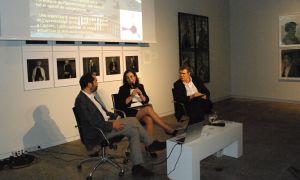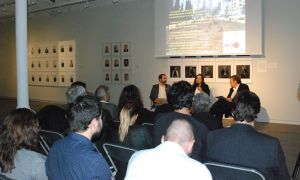"The best way to predict the future is to invent it," said Elizabeth Zapata, distinguished technologist - HP, at the presentation ceremony of the Europa Segle XXI Award. This is the seventh edition of an award promoted by the Catalunya Europa Foundation and the Banco Sabadell Foundation, which focuses on research on European subjects and which this year broadens the fields of interest and increases the economic provision up to € 10,000.
Technology and training, two of the new areas of interest that are part of the 21st century Europe, were the protagonists of the event "Technological change and new skills", a dialogue between Elizabeth Zapata (HP) and Eduard Vallory , director of the "Escola Nova 21" chaired by Francesc Colomé, president of the executive of the Fundació Catalunya Europa.
We live a historical moment in which the only security is the change. It is estimated that in 2030, 1 in 3 current professions can be made by robots. Zapata also announced some of the "megatrends", great global challenges that go through areas as diverse as environmental sustainability, aging population, new business models or artificial intelligence.
In fact, 65% of today's children will work in professions that do not yet exist. In view of this perspective it is logical to ask ourselves what competences we should acquire today to adapt to the labor market of the future. Both Vallory and Zapata agree that the ability to solve complex problems will be one of the most important faculties of the future, together with the capacity for critical and analytical thinking, the ability to reason and the ability to analyze systems. Instead, other capabilities such as memorization, manual skills, or writing or mathematical skills are becoming less important.
For Vallory, the development of competencies requires a change in learning strategies and a society capable of responding to all these challenges.









